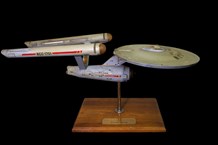A collection of over 2000 books, pamphlets, patents, manuals and articles documenting the origins and development of computing from early records and analysis of statistics to the coming of the electronic digital computer, the library was formed by Ben Weinreb, well-known book dealer and co-author of the Encyclopaedia of London, who died earlier this year.
At £12,000, a Programmers’ Handbook for Manchester Electronic Computer MK11, a signed copy of a duplicated typescript manual prepared in early 1951 by Alan Turing, was the top lot, but in historical terms it is Charles Babbage, inventor of the difference engine for calculating and printing mathematical tables, who is thought of as the father of computer science.
Babbage is the link with this silk portrait of Joseph Marie Jacquard, the designer of the first really successful mechanical loom.
Jacquard’s loom, which automatically produced complex patterns and pictures in woven silk, was controlled by punch cards that Babbage was later to employ in his analytical engine, a project which proved too ambitious for the mechanical capabilities of the day but is nowadays seen as the germ of today’s electronic computer.
This portrait was woven around 1840 by Didier-Petit of Lyon, in whose factory Babbage had spent many fascinated hours watching the loom at work.
It cannot be directly linked with Babbage, but such portraits were only made as a special favour (Babbage already owned one but ordered another for his friend and patron, the Duke of Tuscany, on his visit to the factory) and they are consequently rare. The example in the Weinreb collection, valued at only £400-600, was bid to £4500 (plus 10 per cent premium) by the same American collector who bought the Turing manual and much else in the collection.
Silk loom has Mr Babbage analysing the possibilties
UK: THE LINK between the woven silk portrait illustrated right and the modern world of computing may not be instantly apparent, but this 6in x 4in (16 x 11cm) silk panel, albeit a curiosity rather than a key scientific document, had a successful part to play in the Weinreb Computer Collection, which was sold by Bloomsbury Book Auctions in London on October 28.




